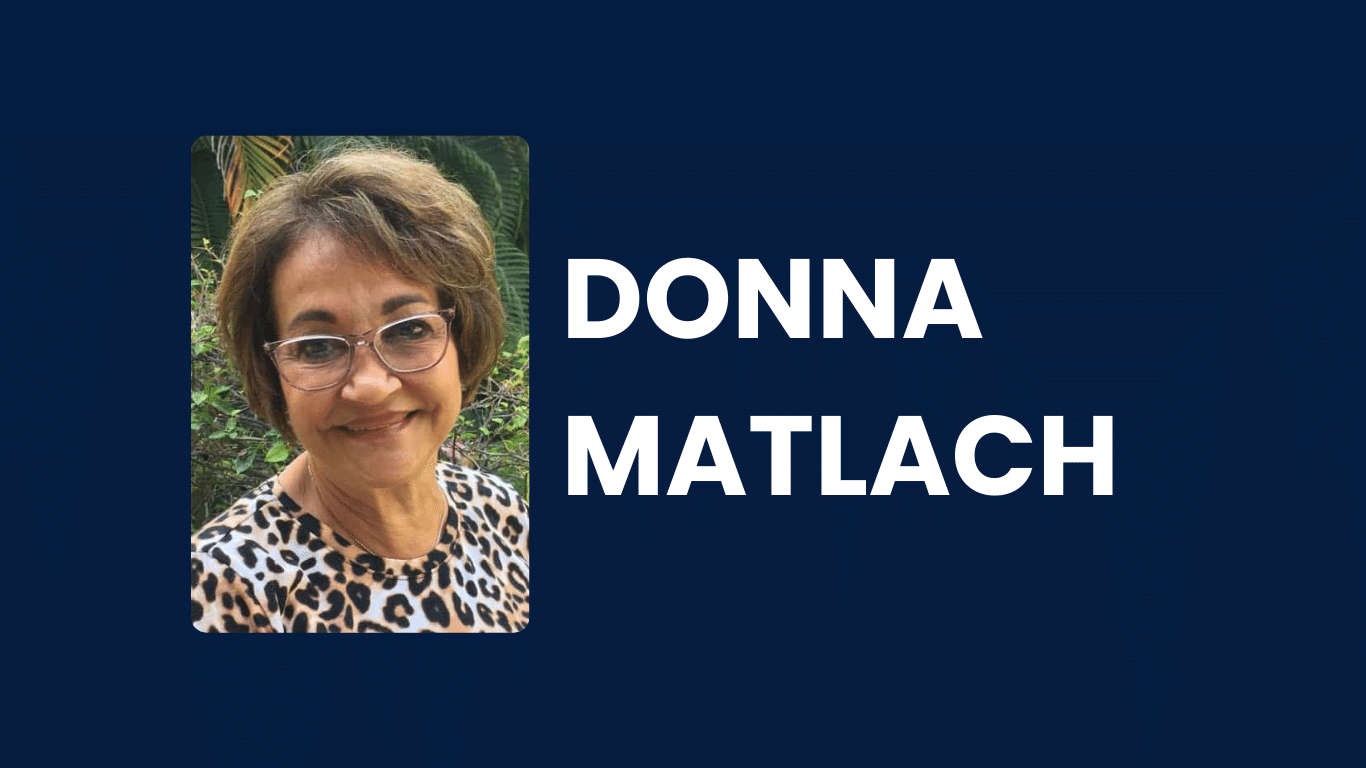Reverend Donna Matlach, Eosinphilic Asthma Clinical Trial Participant
By ciscrp1|Nov 23, 2024
By ciscrp1|Nov 23, 2024

A Wizard of Hope
Reverend Donna Matlach recalls her challenging medical journey with severe eosinophilic asthma, likening it to Dorothy’s adventure in The Wizard of Oz. “I told my sister, Roseanne, that I felt like I was going to see the Wizard,” Donna recounts, describing her anticipation before meeting Dr. Sally Wenzel at the University of Pittsburgh Medical Center. Even Donna’s granddaughter chimed in, saying, “Nana is going to see the Wizard!”
Living with Severe Eosinophilic Asthma
For over a decade, Donna battled severe eosinophilic asthma, a condition that couldn’t be controlled by standard asthma treatments. “It’s another level of asthma. Mine is severe—the highest level,” Donna explains. The illness left her in and out of hospitals up to four times a year and visiting her doctor as frequently as three to four times a month.
Donna’s treatment relied heavily on corticosteroids, taken orally and by inhalation. While these medications offered some relief, they caused severe side effects, including weight gain and brittle bones that led to multiple fractures.
A Search for Answers
Determined to improve her condition, Donna embarked on a nationwide search for answers. She consulted 28 doctors at 12 hospitals, most of them pulmonary specialists, yet received conflicting diagnoses. Adding to her frustration, the medications and nebulizer treatments she relied on were failing to control her symptoms.
“At one point, doctors told me I should see a psychiatrist. I was on a nebulizer every hour to stop the coughing and wheezing,” Donna recalls. Despite undergoing over 600 allergy tests, no allergies were detected.
Her persistence led her to a specialist in Colorado, who recommended consulting with Dr. Wenzel, a leading expert and founder of the University of Pittsburgh Asthma Institute.
Facing Unimaginable Challenges
During her visits to Dr. Wenzel, Donna underwent video-assisted thoracic surgery to obtain lung biopsies. The procedure was excruciating, leaving her in severe pain and triggering a full-blown asthma attack. “I’ve had many surgeries, including two C-sections, but this was the worst,” Donna recalls.
Donna also faced complications from sinus blockages, with her sinuses being 98% obstructed. Two six-hour surgeries restored her ability to taste and smell after three years of impairment. However, her weakened lungs delayed the first surgery, and Dr. Wenzel’s prediction that the relief would last only three years proved accurate.
Exploring Clinical Research
Recognizing the severity of Donna’s condition, Dr. Wenzel suggested clinical trial participation. Although Donna was initially deemed “not sick enough” for one trial, she eventually qualified for another in California.
Donna traveled monthly from Arizona to California for three years at her own expense. While the trial medication took six months to take effect, it eventually provided some relief, though its effectiveness waned over time.
Despite setbacks, Donna’s resolve remained strong. Even during hospital stays and near-fatal asthma attacks, she pursued her Master’s of Divinity and later earned her Doctorate in Ministry and a Master’s in Life Coaching. “God told me, ‘You’re not done,’” Donna says.
A Life of Advocacy
Donna’s experience inspired her to co-found the Severe Asthma Foundation with Dr. Wenzel and another patient, Brenda. She later joined the Allergy and Asthma Network, where she serves as a board member and advocate, sharing her story and raising awareness about clinical trials.
“It’s not just a physical illness—it affects your emotional well-being, your family, your finances,” Donna explains. “No one ever asked me about those things until I met Dr. Wenzel.”
Encouraging Clinical Trial Participation
Donna strongly encourages others to consider clinical research. “It can be life-saving,” she says. “For me, how could it be any worse? I was already having near-fatal episodes. Clinical trials can be the answer.”
Her mission as a minister and advocate is clear: to provide hope and guidance for others facing similar struggles. “God has a purpose for my life—to reach out to people with similar physical issues as a friend, minister, and counselor.”